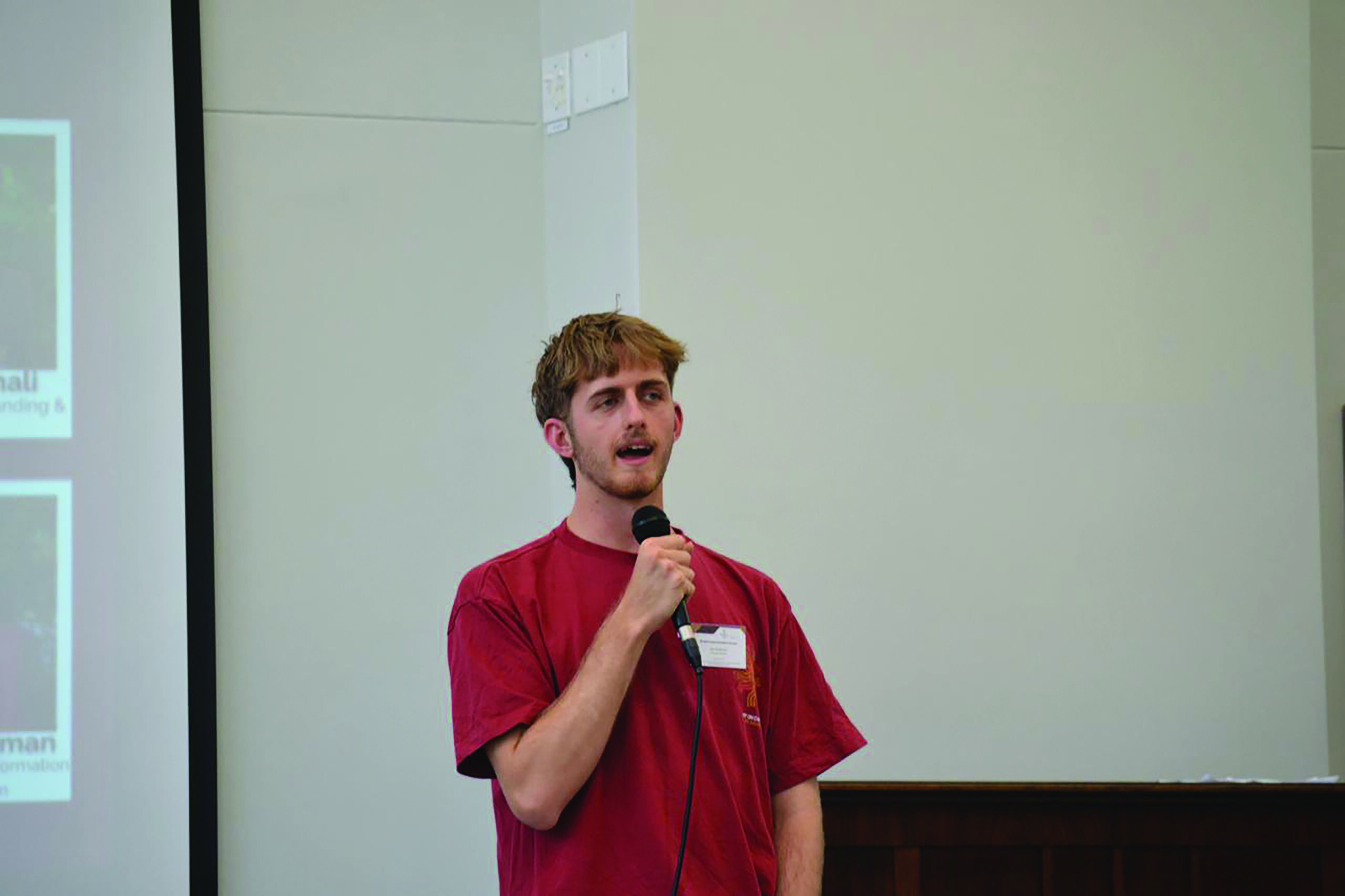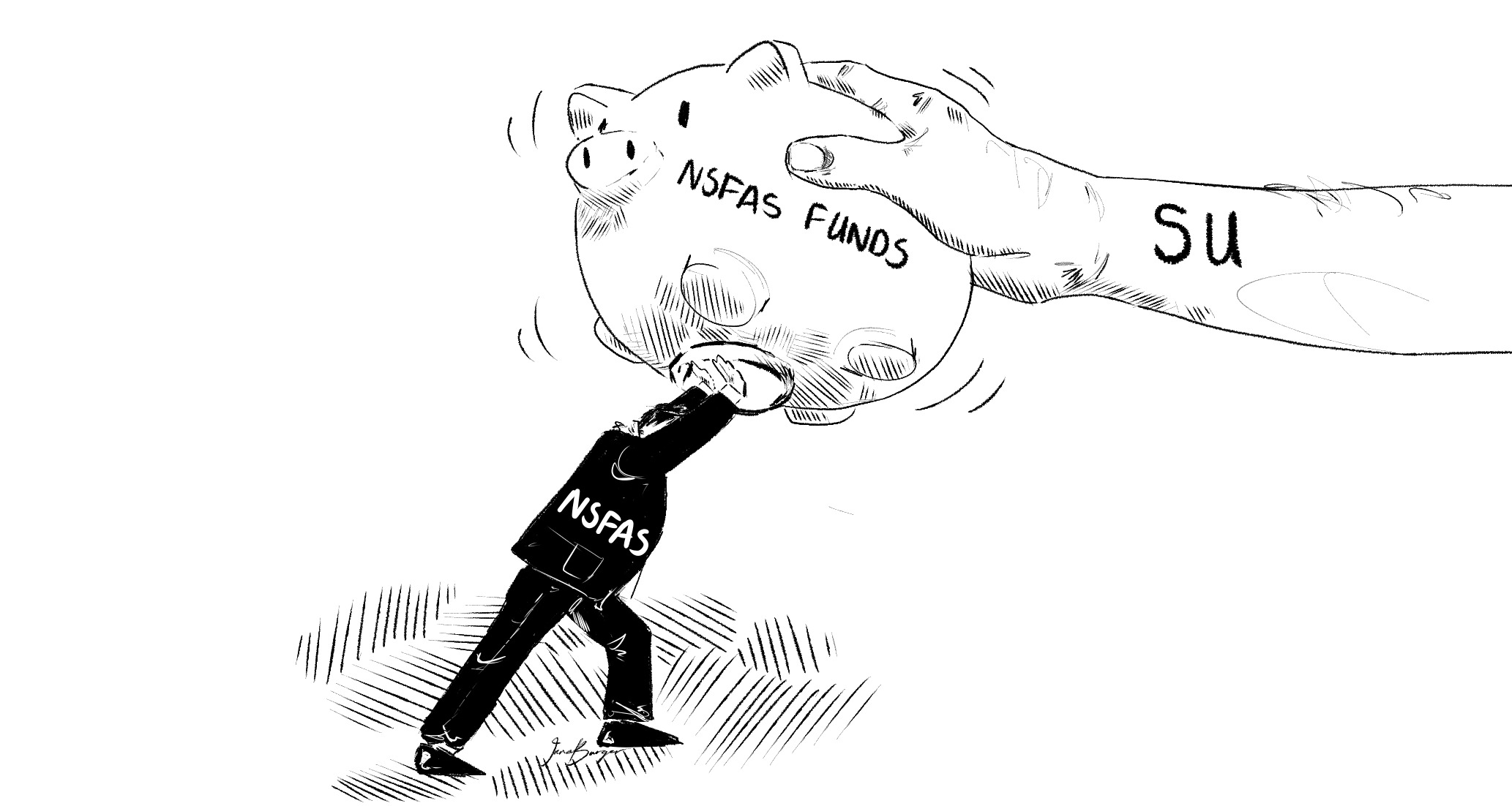By Slade van Rooyen
Chants of “Fedics must fall” echoed down Claassen Street as Fedics employees engaged in lunch-hour protests against what they deemed to be unfair working conditions. Fedics is the catering division of Tsebo Solutions Group. One of Die Matie’s journalists attended these protests, which took place on the afternoons of 20 and 21 July.
Protesters marched between Metanoia Residence, Tienie Louw Centre and Huis Neethling Men’s Residence at Stellenbosch University (SU), where they said they were employed by Fedics.
According to Songezo Mzili, a Fedics employee and member of the Food and Allied
Workers Union, who represented the employees in their negotiations, staff members were initially not compensated at one and one-half times times their ordinary wages for working on Sundays, as required in terms of section 16 of the Basic Conditions of Employment Act.
“They were not paying that money [because they were] saying we have more holidays than other people, but when I checked in other [similar] units . . ., they get paid [extra] for Sundays,” Mzili said.
This was rectified following an agreement reached in June this year, but employees allegedly did not receive back pay for Sundays already worked.
Mzili alleged that Fedics’s failure to disclose employees’ hourly remuneration rates rendered it difficult to ascertain the correct deductions applicable when employees took unpaid leave.
He also took issue with the way in which employees’ salaries were structured. Total earnings were divided into a gross salary and a “client allowance recharge”. Mzili alleged that this prejudiced employees when it came to the calculation of night shift allowances and bonuses, and affected wage increases.
Despite requests for comment on the above allegations, Fedics opted not to respond to individual averments. However, Monica Braganca van der Spuy, on behalf of Fedics, confirmed that the company was “aware of a recent matter pertaining to protest action at the premises of Stellenbosch University”.
“Fedics has been fully committed in attaining the full understanding and all facts pertaining to the protest action in a constructive and structured manner, and will always strive to be compliant with all labour legislation, while remaining transparent and upholding the rights of employees,” Braganca van der Spuy’s letter read.
“As a well-established and ethical employer, it is also important to stress that Fedics will continue to prioritise the welfare and safety of all our staff, customers and partners.”
Employees who participated in the protest on 21 July received letters signed by Eldrick Cupido, the Fedics project manager at SU, informing them that they were participating in an “unprotected strike” and that “disciplinary action” could be taken against them, “which could lead to [their] dismissal”. Braganca van der Spuy mentioned, however, that negotiations with relevant parties are ongoing to ensure a “timeous resolution” of the dispute.
According to Mzili, a tentative agreement was reached on 22 July between Fedics and the relevant employees, which addresses several of their concerns, including salary structure, back pay and an increase in the new “combined basic salary”.
Mzili said, “On Wednesday we have a meeting with [management], then we [will] sign if we are happy with the offer that we get from the company.”



